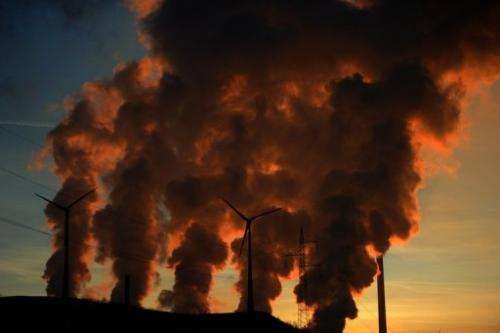Smoke billows from the cooling towers of a coal-fired power plant in Gelsenkirchen, western Germany, on January 16, 2012. Major economies are now implementing important legislation on climate change, according to a survey published by GLOBE International.
Major economies are now implementing important legislation on climate change, according to a survey published on Monday.
Out of 33 countries, 32 have introduced or are pushing ahead with "significant" laws on climate, it said.
Most of them are emerging economies.
In 2012, Mexico passed a law that sets a target for reducing greenhouse-gas emissions by 30 percent by 2020 compared with a "business as usual" scenario.
South Korea approved a bill that will lead to an emissions trading system by 2015, Japan introduced a carbon tax and a law promoting low-carbon development in the cities, and Vietnam passed a forestry protection scheme, REDD Plus.
In China, the world's biggest emitter by volume, the southern industrial area of Shenzhen passed the country's first local legislation for managing carbon emissions. The country also began to draft a nationwide law on climate change.
The survey was published by GLOBE International, an association of legislators, which was meeting in London on Monday and Tuesday.
Some laws are inspired by energy costs rather than by climate change itself, but led to the same goal of energy security and efficiency, it said.
The report said legislative changes at home could be a useful spur to the UN talks on climate change, which are making meagre progress towards a worldwide pact on emissions.
"(They) ultimately give world leaders the political space to go further and faster in the UN negotiations, helping provide a foundation for a comprehensive, global deal by 2015."
(c) 2013 AFP























